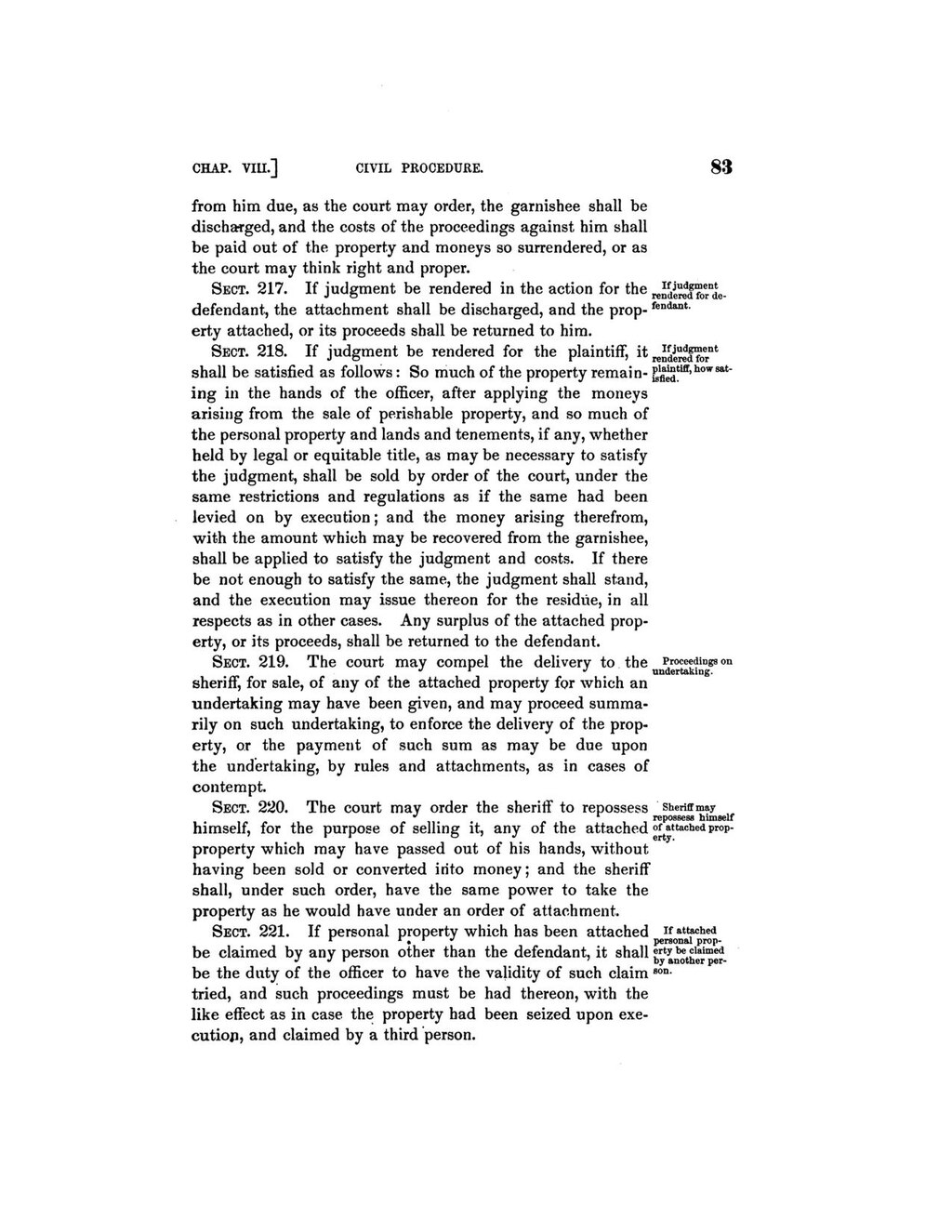from him due, as the court may order, the garnishee shall be discharged, and the costs of the proceedings against him shall be paid out of the property and moneys so surrendered, or as the court may think right and proper.
If judgement rendered for defendant.Sect. 217. If judgment be rendered in the action for the defendant, the attachment shall be discharged, and the property attached, or its proceeds shall be returned to him.
If judgement rendered for plaintiff, how satisfied.Sect. 218. If judgment be rendered for the plaintiff, it shall be satisfied as follows: So much of the property remaining in the hands of the officer, after applying the moneys arising from the sale of perishable property, and so much of the personal property and lands and tenements, if any, whether held by legal or equitable title, as may be necessary to satisfy the judgment, shall be sold by order of the court, under the same restrictions and regulations as if the same had been levied on by execution; and the money arising therefrom, with the amount which may be recovered from the garnishee, shall be applied to satisfy the judgment and costs. If there be not enough to satisfy the same, the judgment shall stand, and the execution may issue thereon for the residue, in all respects as in other cases. Any surplus of the attached property, or its proceeds, shall be returned to the defendant.
Proceedings on undertaking.Sect. 219. The court may compel the delivery to the sheriff, for sale, of any of the attached property for which an undertaking may have been given, and may proceed summarily on such undertaking, to enforce the delivery of the property, or the payment of such sum as may be due upon the undertaking, by rules and attachments, as in cases of contempt.
Sheriff may repossess himself of attached property.Sect. 220. The court may order the sheriff to repossess himself, for the purpose of selling it, any of the attached property which may have passed out of his hands, without having been sold or converted into money; and the sheriff shall, under such order, have the same power to take the property as he would have under an order of attachment.
If attached personal property by claimed by another person.Sect. 221. If personal property which has been attached be claimed by any person other than the defendant, it shall be the duty of the officer to have the validity of such claim tried, and such proceedings must be had thereon, with the like effect as in case the property had been seized upon execution, and claimed by a third person.
